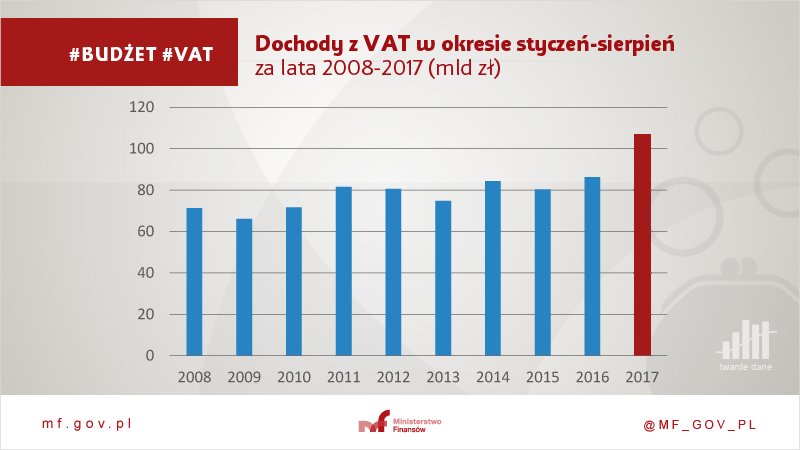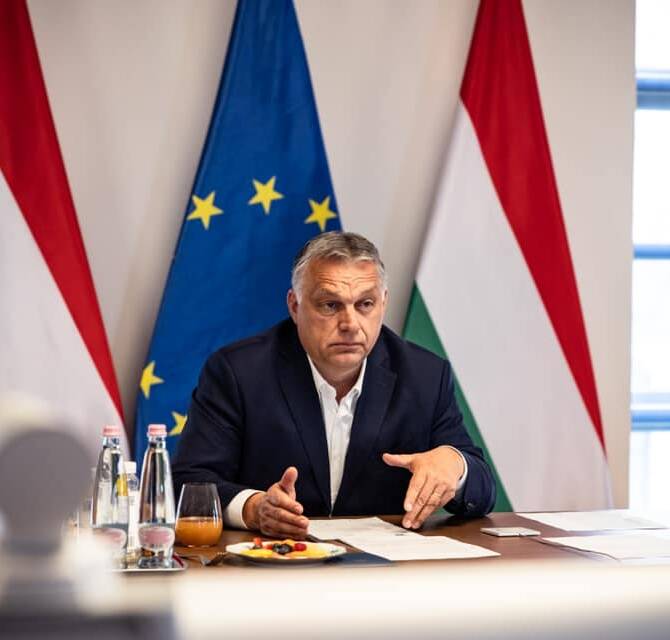By Olivier Bault.
Poland – “It was enough not to steal! “This is how Polish Prime Minister Beata Szydło explained in April this year the excellent tax revenues and also the profits generated by the coal mines, an industry that was on the brink of bankruptcy before the PiS came to power at Fall 2015. “It is enough not to steal and not to waste public money” is now the explanation that regularly comes in the mouth of the PiS leaders, as the very good performance of the budget is confirmed and that the scale of tax fraud is revealed, particularly with regard to VAT, during the eight years of the PO-PSL government under the leadership of Prime Minister Donald Tusk and then when he emigrated to Brussels in 2014 in search of a better salary, by Prime Minister Ewa Kopacz.
These good results, which go beyond the expectations of the government itself, are directly linked to the fight against tax evasion, especially systems of business chains created with the sole purpose of generating false invoices in order to cheat on VAT. In the hydrocarbon trade, for example, there is talk of a genuine “mafia of fuels” which has been undermined by the new rules put in place by the government of Beata Szydło under the impetus of the Minister of Finance Mateusz Morawiecki. It seems that in 2012, fuel companies began to sound the alarm, alerting to increasing unfair competition from fraudsters who did not pay VAT at 23%. After the adoption of new rules by the PiS majority in August 2016, declared trade in fuels rose very rapidly by 30%, which gives an idea of the place taken by the black market.
The PiS government has also unified three administrations that have worked separately until nowadays: taxation, tax control and customs. These administrations are now joined into a national tax administration (KAS) since March 1, 2017. The Ministry of Finance has also introduced new IT solutions to hunt fraudsters. For what result? For the period from January to August, tax revenues increased by PLN 20.5 billion (about EUR 4.8 billion) compared to 2016. Annual income of tax revenues increased by 23.5 % from one year to the next, without any increase in the rates levied. Excise and gaming revenues increased by 4.1%, and income tax revenues by 8.3%, while tax revenues on companies are 13.3% higher. As a result, the budget deficit for this year is expected to be 10 or 20 billion zlotys below what was stipulated in the budget law.
In early September, on the eve of the Krynica Economic Forum, Moody’s rating agency raised its growth forecasts for Poland in 2017 from 3.2% to 4.3% and reduced its forecasts of the public finance sector deficit from 2.9% to 2.5%. Yet when PiS introduced the first family allowances since the fall of communism in the spring of 2016, the liberal-libertarian opposition (the Civic Platform — PO — of the former Prime Minister Donald Tusk and the “Modern” party — Nowoczesna — created in order to recover dissatisfied voters from the PO at the 2015 elections), warned that this would lead to the bankruptcy of the state budget. This is all the more so because the PiS still applies other policies known as “populists”: it has increased minimum wages (the average wage is also rising sharply due to an unemployment rate of 7% which had never been so low since 1991), it increased the pensions of the most disadvantaged pensioners and reduced the age of retirement a contrario of what is done elsewhere in Europe. It has also launched a program to build subsidized housing for families and increases military spending.
How is this possible? “It is enough not to steal”, hammered the Conservative majority in favor of the liberal opposition presented in the foreign media as better manager but which has always benefited, and it is not for no reason, of the support of generous sponsors of business milieu. According to figures prepared by the current government for the European Commission, the difference between the VAT that would theoretically have been collected by the State and the actual revenue from the budget for this tax has been multiplied by more than seven during the PO-PSL leadership period (2007-2015) from PLN 7.1 billion (EUR 1.7 billion) to PLN 50.4 billion (EUR 11.7 billion) in 2015. The cumulative amount of the budget for this period would total 262 billion zlotys (61 billion euros)! By comparison, Poland’s budget deficit for 2017 is expected to be just under 33 billion zlotys (7.7 billion euros).
This, together with the social policies and gigantic cases of corruption exposed today by the parliamentary committees of inquiry set up by PiS (fraudulent bankruptcy of the para-bank Amber Gold institution, fraudulent reprivatizations of real estate in the city of Warsaw, which is still run by the PO, investigations of the Smolensk tragedy, …), is probably contributing to PiS’ record popularity in polls, despite its clumsiness and numerous conflicts with the European Commission, in parallel with the great fall of popularity of the PO.

Translated from French by the Visegrád Post.




